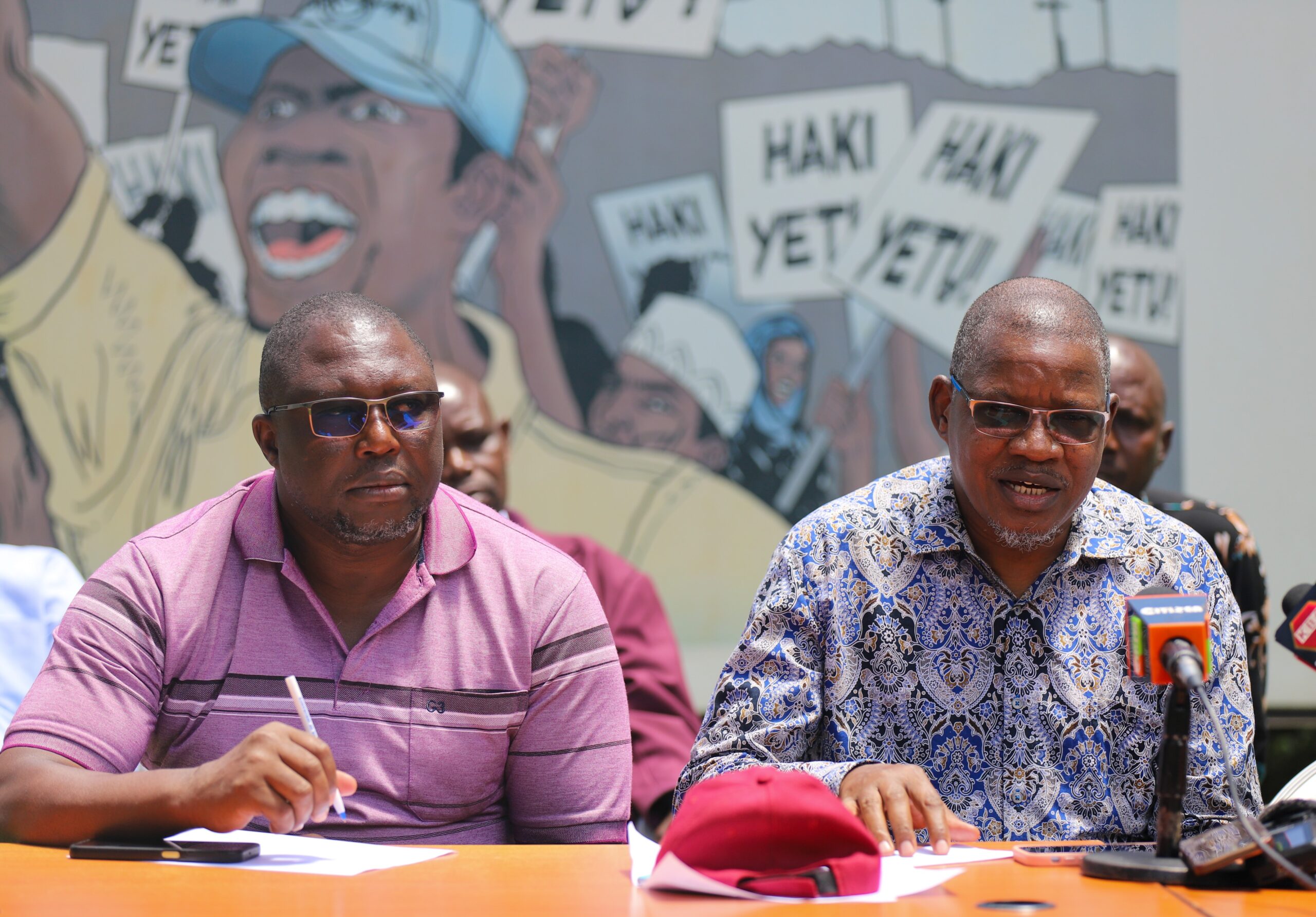The Elimu Bora Working Group is concerned that despite explicit constitutional and legal provisions declaring basic education free and compulsory, the government still condones illegal levies in primary and junior secondary schools.
As schools reopen tomorrow for the second term of 2025, if the Cabinet Secretary for Education does not act, the parents and students will continue being exploited through these illegal levies.
EBWG conducted a survey that revealed that heads of public schools demand that parents pay illegal fees before children are allowed in school.
The survey was conducted between March and April 2025 and looked at 370 public schools at primary and junior secondary levels. It employed purposive sampling to guarantee that at least one school from each of the 47 counties was included. Parents and guardians provided insights into their experiences.
The survey revealed that the unlawful levies include charges on admission, desks, lockers, books, reams of papers and other stationery, development projects, remedial and extra lessons, co-curricular activities, and examinations.
Although primary and junior secondary education should be free, the survey revealed that over 90 per cent of schools unlawfully charge admission fees. These fees vary from Sh500 to Sh25,000, particularly in urban areas. Moreover, many schools impose additional charges on parents for desks and lockers, occasionally requiring them to supply the furniture themselves.
For instance, M.M. Shah Primary in Kisumu charges between Sh15,000 and Sh20,000 for admission. Victoria Primary in Kisumu requires Sh13,000 to Sh15,000 for admission, along with an additional Sh5,000 for a locker. In Mombasa, St. Mary’s Primary School charges Sh10,000 for admission and Sh4,500 for a locker. At Kibau Primary and Junior Secondary School in Machakos, parents must pay Sh1,000 for admission and Sh4,000 for desks.
Despite free and compulsory basic education requiring the government to cover textbooks, between 45 and 55 per cent of schools surveyed still charge for them. Some schools require cash payments directly, whereas others provide parents with shopping lists. St. Mary’s Primary School in Mombasa charges Sh6,000 for books in the lower primary, while Taranganya Mixed Junior Secondary School in Migori insists that parents pay Sh1,500 each term. Gukipimo Primary School in Migori demands that parents purchase five specific textbooks every term.
The survey also found that 58 per cent of junior secondary schools and 40 per cent of primary schools impose development levies, which are often labeled as classroom, laboratory, or toilet construction fees. For example, Thome Primary in Kitui charges Sh2,000 per parent, while Taranganya Mixed Junior Secondary School in Migori demands Sh4,000 yearly.
Fees for remedial lessons are also widespread despite such classes being banned. About 89 per cent of schools compel learners to take extra tuition at a cost, especially in upper primary and junior secondary schools. At M.M. Shah Primary School in Kisumu, parents must pay Sh800 monthly in lower primary, Sh1,000 in upper primary, and Sh1,500 in junior secondary school. At Peter Kibukosya Primary School in Nairobi, remedial lessons cost Sh1,000 monthly at all levels.
Even though government funding should fully cover exam fees, approximately 80 per cent of junior secondary schools and 60 per cent of upper primary schools continue to impose them. At Kibisi FYM in Bungoma, parents pay Sh1,000 per term, while those with children at Nyang’iti Primary School in Migori pay Sh150 per exam and Sh2,400 yearly at Victoria Primary School in Kisumu.
Most schools do not provide receipts for these payments, making it difficult for parents to keep records or question the illegal charges.
The impact of these illegal levies is dire: 85.7 per cent of the schools surveyed send learners home if they cannot pay. Many students ultimately dropout, denying them their right to education. About 45 per cent of parents reported knowing children who stayed at home because their families could not afford the illegal fees. The risk of dropout was higher in junior secondary schools than primary due to the increasing unlawful costs.
These findings indicate that underfunding, poor monitoring, and lack of enforcement have produced an unjust education system in which families are compelled to pay for what ought to be free.
According to Article 53(1)(b) of the Constitution and the Basic Education Act (2013), every child has the right to free and compulsory basic education. Section 32 of Basic Education Act outlaws charging of admission fees. The government has a duty to protect these rights and punish school heads who demand illegal payments.
Because of this, the Elimu Bora Working Group demands the following actions:
- The Cabinet Secretary for Education must stop all illegal levies and protect parents and guardians from further exploitation. The CS must also take stern action against any school heads and county directors of education found culpable of enforcing illegal levies.
- All parents must stop paying illegal fees.
- All students sent home for not paying unlawful fees must be permitted to return to class unconditionally.
- All schools must publicly display approved fee schedules (capitation only), with penalties for non-compliance.
- The William Ruto regime must stop pushing for the privatization of education and instead adequately fund public schools, covering basic needs, learning materials, and activities.

